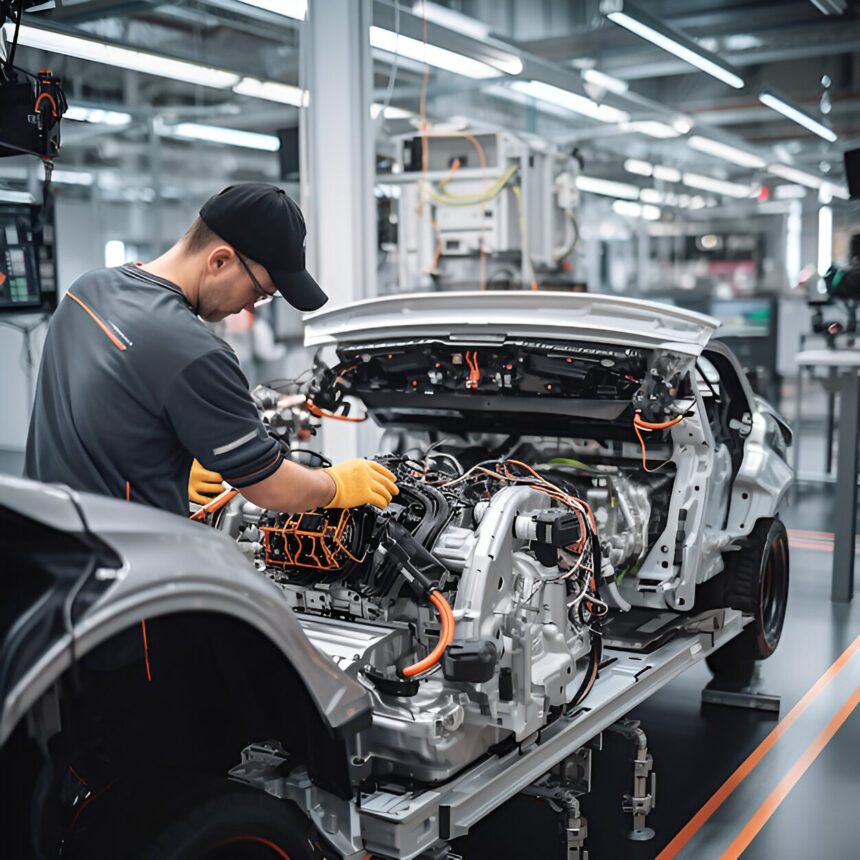Car mechanics are the unsung heroes of the automotive world, working tirelessly behind the scenes to ensure that our vehicles run smoothly and efficiently. From diagnosing complex issues to performing intricate repairs, car mechanics play a crucial role in keeping our cars on the road and functioning optimally. In this comprehensive guide, we will delve into the world of car mechanics, exploring the intricacies of their work, the skills they possess, and the importance of their role in the automotive industry.
The Role of a Car Mechanic
Car mechanics, also known as automotive service technicians, are skilled professionals who specialize in diagnosing, repairing, and maintaining vehicles. Their primary responsibility is to ensure that cars are in safe and efficient working condition by identifying and fixing mechanical issues. Car mechanics work on a wide range of vehicles, including cars, trucks, and motorcycles, and are trained to handle various types of repairs, from routine maintenance tasks to complex engine overhauls.
Skills and Qualifications
Becoming a car mechanic requires a combination of technical knowledge, hands-on experience, and specialized training. Most car mechanics have completed formal education programs, such as vocational training or apprenticeships, to acquire the necessary skills for the job. Additionally, many mechanics obtain certification from organizations like the National Institute for Automotive Service Excellence (ASE) to demonstrate their proficiency in specific areas of automotive repair.
Some of the key skills that a successful car mechanic possesses include:
- Mechanical Aptitude: Car mechanics must have a strong understanding of how vehicles work and be able to troubleshoot and diagnose mechanical issues effectively.
- Problem-Solving Skills: Mechanics need to be able to analyze complex problems and develop creative solutions to repair vehicles efficiently.
- Attention to Detail: Precision is crucial in car repair, and mechanics must pay close attention to detail to ensure that repairs are completed accurately.
- Customer Service: Good communication skills are essential for car mechanics to explain repairs to customers and provide excellent service.
The Diagnostic Process
One of the most critical aspects of a car mechanic’s job is diagnosing issues with vehicles accurately. This process often involves a combination of technical knowledge, experience, and the use of diagnostic tools and equipment. When a car is brought into the shop with a problem, the mechanic will typically perform a series of tests to identify the root cause of the issue. This may include:
- Visual Inspection: The mechanic will visually inspect the vehicle to look for obvious signs of damage or wear.
- Computer Diagnostics: Many modern vehicles are equipped with onboard computers that can provide diagnostic trouble codes to help pinpoint issues.
- Test Drives: Mechanics may take the vehicle for a test drive to observe how it performs under real-world conditions.
Once the issue has been identified, the mechanic will create a repair plan and provide an estimate to the vehicle owner before beginning any work.
Types of Repairs
Car mechanics are trained to handle a wide range of repairs, from routine maintenance tasks to complex engine overhauls. Some of the most common types of repairs that mechanics perform include:
- Oil Changes: Regularly changing a car’s oil is essential for maintaining engine performance and longevity.
- Brake Repairs: Keeping a car’s brakes in good working order is crucial for safety on the road.
- Engine Tune-Ups: Mechanics can perform tune-ups to ensure that an engine is running efficiently and smoothly.
- Transmission Repairs: Repairing or replacing a car’s transmission is a complex job that requires specialized knowledge and expertise.
In addition to these repairs, car mechanics may also work on electrical systems, suspension components, and other critical parts of a vehicle.
The Future of Car Mechanics
As automotive technology continues to evolve, the role of car mechanics is also changing. Modern vehicles are equipped with advanced computer systems, sensors, and electronic components that require specialized knowledge to diagnose and repair. As a result, car mechanics are increasingly becoming more like automotive technicians, with a greater focus on electronics and computer diagnostics.
Furthermore, the shift towards electric and autonomous vehicles is also shaping the future of car mechanics. Technicians will need to adapt to new technologies and acquire the skills necessary to work on these cutting-edge vehicles. Despite these changes, the fundamental principles of car mechanics—diagnosing and repairing vehicles—will remain at the core of the profession.
Conclusion
Car mechanics are the backbone of the automotive industry, providing essential services that keep our vehicles running smoothly and safely. Their specialized skills, technical knowledge, and dedication to their craft make them invaluable assets in the world of automotive repair. Whether it’s a routine oil change or a complex engine repair, car mechanics play a vital role in ensuring that our cars are in optimal working condition.
By understanding the intricacies of car mechanics and the importance of their work, we can better appreciate the tireless efforts that go into maintaining and repairing our vehicles. Next time you visit an auto repair shop, take a moment to thank the car mechanics who work diligently to keep you on the road.





